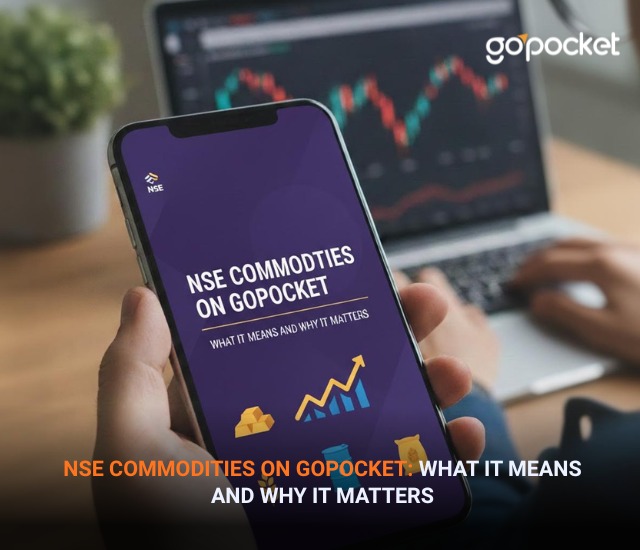
As an investor, you’re likely familiar with the classic tug-of-war in finance: the safety of Fixed Deposits (FDs) with their modest returns versus the thrilling potential of the stock market with its inherent risks. But what if there was a middle path? An investment vehicle that offers the stability of a fixed income but with interest rates that can often outshine traditional FDs?
Enter the Non-Convertible Debenture, or NCD.
For a savvy investor looking to diversify their portfolio, understanding NCDs is a game-changer. They represent a unique opportunity to lend money to established companies and earn a predictable, fixed interest in return.
This guide will walk you through everything you need to know—from what NCDs are to how you can start investing in them.
What Exactly is an NCD? Let's Break It Down
Imagine a large, reputable company wants to expand its operations—maybe build a new factory or launch a new product line. They need a significant amount of capital. Instead of going to a single bank for a giant loan, they decide to borrow smaller amounts from a large number of public investors, just like you.
In exchange for your money, the company issues you a financial instrument, which is essentially a formal IOU. This IOU is the debenture. It clearly states:
- The principal amount you lent the company.
- A fixed rate of interest they will pay you.
- A specific maturity date when they will return your principal amount.
The "Non-Convertible" part is crucial. It simply means this IOU will always remain an IOU. Unlike convertible debentures, you don't have the option to convert your investment into company shares (equity) later on. You are a lender, not a part-owner. You’re here for the fixed, steady returns.
The Two Flavors of NCDs: Secured vs. Unsecured
Not all NCDs are created equal. They primarily come in two types, and understanding the difference is key to managing your risk.
1. Secured NCDs
Think of a secured NCD like a home loan. When you take a home loan, the bank has your house as collateral. If you fail to pay, the bank can seize the asset to recover its money.
Similarly, Secured NCDs are backed by the company's assets. The company sets aside specific assets (like property, machinery, or receivables) as security for the NCD holders. If the company unfortunately defaults on its payments, these assets can be liquidated to pay back the investors.
- Risk Level: Lower
- Interest Rate: Generally lower than unsecured NCDs, as the risk for the investor is reduced.
2. Unsecured NCDs
An unsecured NCD is more like a personal loan or credit card debt. It’s issued based purely on the company's reputation and its promise to pay you back. There is no specific asset backing this type of NCD. Your investment is secured only by the company’s financial health and creditworthiness.
- Risk Level: Higher
- Interest Rate: Generally higher. To compensate investors for taking on more risk, companies offer a better interest rate on unsecured NCDs.
Why Should NCDs Be on Your Investment Radar?
- Potentially Higher Returns: NCDs, especially those from well-rated companies, often offer significantly higher interest rates than bank FDs or government savings schemes.
- Predictable Income Stream: The fixed interest payments (which can be monthly, quarterly, annually, or cumulative) provide a regular and predictable cash flow, making it easier to plan your finances.
- Liquidity and Tradability: This is a major advantage. NCDs are listed on stock exchanges like the BSE and NSE. This means you don’t necessarily have to hold them until maturity. If you need funds or if the NCD's market price increases, you can sell it on the secondary market.
- No TDS on Demat Holdings: If you hold NCDs in a Demat account, no Tax is Deducted at Source (TDS) on the interest earned. However, you are still liable to pay tax on the interest income as per your tax slab.
The Detective Work: How to Choose the Right NCD
Since NCDs (especially unsecured ones) are heavily reliant on the issuing company's ability to pay its debts, a little homework is essential. Just chasing the highest interest rate can be a trap. Here’s your checklist for smart NCD investing:
1. The Credit Rating Report Card:
Credit rating agencies like CRISIL, ICRA, and CARE evaluate a company's financial health and assign it a rating. This rating is a simple grade of its ability to meet its financial obligations.
- AAA: Highest safety and lowest credit risk.
- AA: High safety and very low credit risk.
- A: Adequate safety and low credit risk.
- BBB: Moderate safety and moderate credit risk.
Pro-Tip: For a conservative approach, it's wise to stick to NCDs with a rating of ‘AA’ or higher. A lower rating means higher risk, even if the interest rate looks tempting.
2. A Peek into the Company's Financial Health:
You don't need to be a chartered accountant, but a quick look at a few key financial ratios can tell you a lot.
- Debt-to-Equity Ratio: This tells you how much the company relies on debt versus its own funds. A lower ratio is generally better, indicating less financial leverage and risk.
- Interest Coverage Ratio (ICR): This is a critical one. It shows how many times a company's earnings can cover its interest expenses. For example, an ICR of 5 means the company earns five times the amount it needs to pay in interest. A higher ICR is a strong sign of financial stability.
- History of Profitability: Is the company consistently making profits? A company with a track record of strong, stable profits is more likely to honor its NCD payments.
3. The Purpose of the Issue:
Check the NCD prospectus to understand why the company is raising money. Are they raising funds for expansion, growth, and building new assets? That’s generally a positive sign. If they are raising new debt primarily to pay off old debt, it could be a red flag that warrants deeper investigation.
How to Purchase NCDs with GoPocket: Your Step-by-Step Guide
Investing in NCDs is a straightforward process and can be done in two ways:
- Primary Market: When a company first issues NCDs, it's called a public issue. You can apply for these NCDs during the offer period, much like an IPO for stocks.
- Secondary Market: After the initial issue, NCDs are listed on stock exchanges. You can then buy and sell them at their current market price, just like you would trade a share.
To participate in either market, one thing is non-negotiable: you need a Demat and Trading account.
This account is where your NCDs will be held electronically in a safe and secure manner. It’s your gateway to accessing the vast opportunities in the stock and bond markets. If you’re looking to diversify into NCDs, ensuring you have a seamless and user-friendly platform is your first priority.
Opening a Demat account with GoPocket is your first step towards unlocking these powerful fixed-income opportunities and building a truly balanced investment portfolio.

Your Burning Questions About NCDs Answered (FAQ)
We've covered a lot, but you might still have a few questions. Let's tackle them head-on.
1. What is an NCD bond?
In the Indian financial market, the terms "NCD" and "bond" are often used interchangeably, especially when referring to corporate debt. An NCD is a specific type of corporate bond. A "bond" is a broader term for a debt instrument where an investor loans money to an entity (a corporation or government) for a defined period at a fixed interest rate. So, an NCD is simply a bond issued by a company that cannot be converted into the company's stock.
2. What is the difference between an NCD and a normal bond?
This depends on what you mean by a "normal bond."
- NCD vs. Convertible Debenture: The key difference is the "non-convertible" feature. A convertible debenture gives the holder an option to convert it into equity shares, while an NCD does not.
- NCD vs. Government Bond (G-Sec): A government bond is issued by the government and is considered the safest debt instrument (sovereign guarantee). An NCD is issued by a corporation and carries a higher credit risk depending on the company's health. Consequently, NCDs typically offer higher interest rates than G-Secs.
3. Can we pledge these bonds?
Yes, absolutely. If your NCDs are held in your Demat account, they are eligible to be pledged as collateral. You can use them to get a loan, commonly known as a "Loan Against Securities" (LAS). This adds a layer of liquidity to your investment without having to sell it.
4. How long should I hold an NCD?
You have two main strategies here:
- Hold to Maturity (HTM): This is the most common approach. You buy the NCD and hold it until the end of its tenure. Over this period, you collect your regular interest payments, and at maturity, you receive your entire principal amount back. This is ideal for investors seeking stable, long-term income.
- Trade on the Secondary Market: Since NCDs are traded on stock exchanges, their prices can fluctuate based on changes in interest rates and the company's credit profile. If interest rates in the economy fall, the price of your existing NCD (with its higher fixed rate) might go up. You could then sell it on the market for a potential capital gain. This strategy is for more active investors who track market movements.
Conclusion: Finding the Right Balance
Non-Convertible Debentures are more than just financial jargon; they are a powerful tool for portfolio diversification. They offer a compelling middle ground—providing higher returns than traditional safe-havens like FDs while being less volatile than the equity market.
However, they are not risk-free. The key to successful NCD investing lies not just in chasing high-interest rates but in making informed decisions. By carefully evaluating the company's credit rating, financial stability, and the purpose of the funds, you can mitigate risks and tap into a source of steady, reliable income.
So, take the time to do your research, understand your risk appetite, and consider adding the stability and strength of NCDs to your investment strategy. Your future self will thank you for building a smarter, more balanced portfolio.
"Investments in securities market are subject to market risks. Read all the related documents carefully before investing."
What's Trending
September 11, 2025
February 19, 2026
September 13, 2025
February 13, 2026
Recent Blog
Open Your Demat Account in Under 5 Minutes
Have any queries? Get support
Blog
Recent Blogs

Open your GoPocket Account within 5 minutes.
Have any queries?





.jpeg)



.jpeg)

.jpeg)



